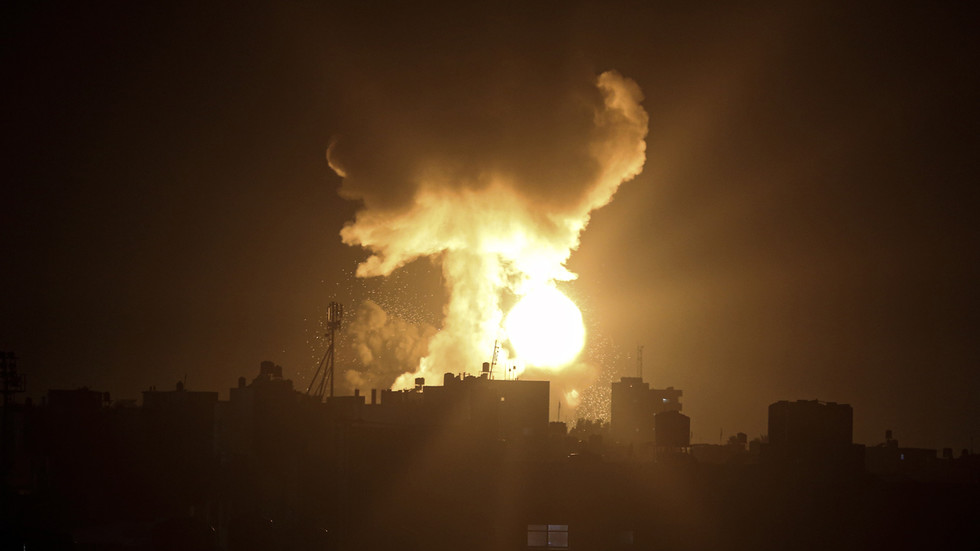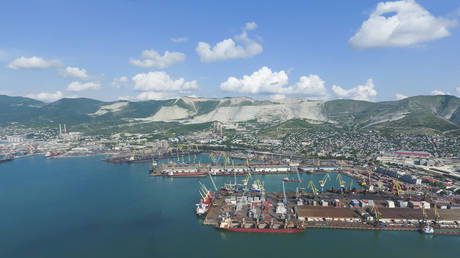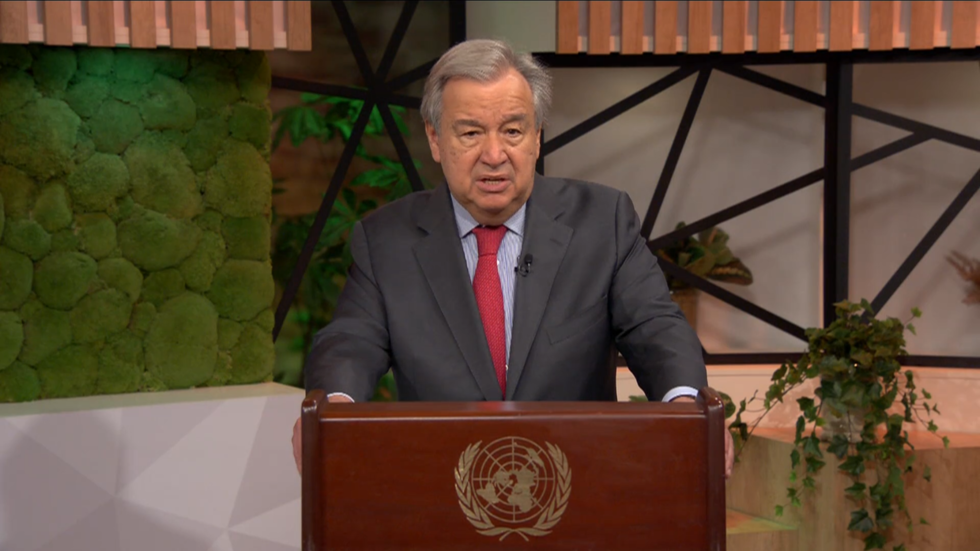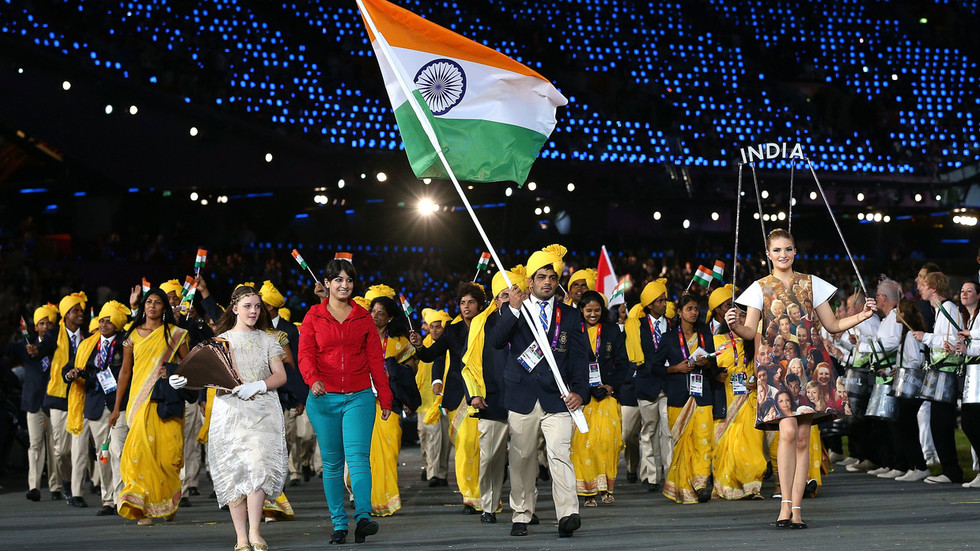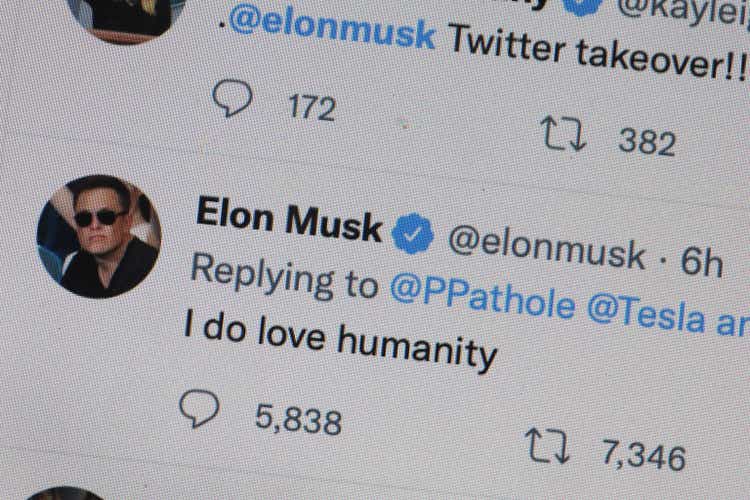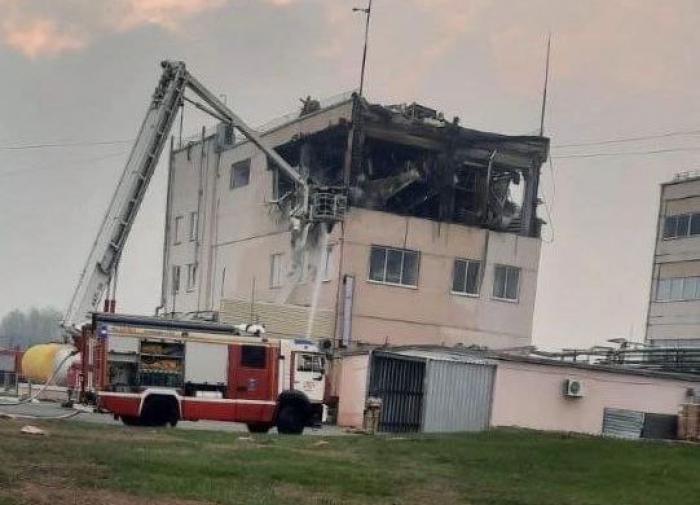[ad_1]
The yr 2021 was a bloody one even by the normally gory requirements of the long-running Israel-Palestine battle. Information from the United Nations reveals that violence within the West Financial institution “reached a five-year peak,” with no less than 79 Palestinians and three Israelis killed in a sequence of assaults, bombings, and confrontations. Within the different Palestinian territory of Gaza, over 230 Palestinians have been killed through the devastating 11-day struggle between Israel and Hamas in Could 2021, whereas 12 folks died in Israel – to not point out accidents and losses of property. Final yr was the deadliest since 2014 and an ominous signal of what’s to return.
With no formal peace course of underway since talks final broke off over seven years in the past, and frustration and anger build up amid zero hope on the horizon for an enduring diplomatic resolution, the scenario might be labeled as a tenuous tinderbox that may ignite at any second in one other bout of preventing and clashes. UN Particular Coordinator for the Center East Peace Course of Tor Wennesland has warned that, “if left unaddressed, the festering battle drivers will drag us into one more damaging and bloody spherical of violence.”
In a transparent recognition that issues may slip out of hand and repeat extra lethal cycles of tit-for-tat assaults, Israeli Protection Minister Benny Gantz and Palestinian Authority President Mahmoud Abbas met in late December 2021 within the city of Rosh HaAyin. It was notably “the primary time the Palestinian chief held talks with a senior Israeli official in Israel since 2010,” a step necessitated by what Gantz described as “deepening safety coordination and stopping terror and violence – for the well-being of each Israelis and Palestinians.” Palestinian Civil Affairs Minister Hussein al-Sheikh labeled this dialogue as “the final probability earlier than the explosion and discovering ourselves at a useless finish.”
Political contradictions
However even because the Gantz-Abbas assembly triggered a wave of worldwide optimism that it could be step one for reviving a dialogue course of and bringing the 2 sides again to the desk to work out a method on the world’s most intractable conflicts, a political firestorm broke out in Israel. Housing Minister Ze’ev Elkin, representing the conservative New Hope get together, thundered in disapproval that “I wouldn’t have invited to my house somebody who pays salaries to murderers of Israelis and in addition needs to place senior IDF [Israel Defense Forces] officers in jail in The Hague [at the International Criminal Court].” Furious cupboard ministers have been quoted as grumbling that Gantz’s initiative “doesn’t contribute to the steadiness of the federal government.”
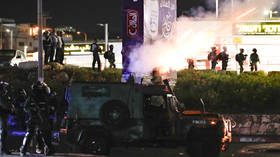
Prime Minister Naftali Bennett, who heads an unwieldy and ideologically fragmented eight-party coalition authorities, and whose right-wing Yamina get together is carefully related to hawkish Jewish settlers against yielding even one inch of the biblical Judea and Samaria (similar to at present’s West Financial institution), was left in a precarious place and needed to admit that Gantz hosted Abbas after his approval. To cowl his again, although, Bennett clarified that the aim of the talks was restricted to bettering safety coordination and financial interactions, to not restart the peace course of.
Below strain from inside his personal get together, and determined to make sure that his contradiction-filled coalition authorities doesn’t collapse, Bennett had beforehand dissociated himself from any revival of peace negotiations with the Palestinians:
“My notion is totally different than that of the protection minister, though we work in concord. I oppose a Palestinian state and I feel it might be a grave mistake to import the failed Gaza mannequin of Hamas which shoots rockets at us, and switch your complete West Financial institution to that. I see no logic in assembly Abbas when he’s suing our troopers within the Hague and accuses our commanders of struggle crimes. In my view, the Palestinian Authority is a failed entity.”
On the different nook of the spectrum within the coalition authorities is International Minister Yair Lapid, the chief of the centrist Yesh Atid, who thinks that Israel has no possibility however to revive the peace course of with the Palestinians. Citing an “intelligence-based evaluation” that campaigns for worldwide ostracization and designation of Israel as an ‘apartheid state’ may fructify in 2022, Lapid has publicly advocated a average stance:
“With out diplomatic dialogue with the Palestinians, this [the threat of Israel being designated an apartheid state] will solely develop extra extreme. We must be cautious of a scenario wherein the world says the Palestinians are selling diplomatic talks and Israel is refusing. The declare that Israel is an apartheid state is a disgusting lie. These are a gaggle of anti-Semites, however I don’t take them frivolously.”
Nonetheless, such is the shaky political setting in Israel that Lapid, who is meant to take over by rotation from Bennett and grow to be the following prime minister in 2023, has been compelled to guarantee his detractors that he would preserve apart his personal beliefs and keep away from dialogue with the Palestinians to protect the coalition:
“Even after a coalition rotation, I’ll stay with the identical folks and the identical disagreements … I plan to face behind the settlement I made with my companions. There is no such thing as a motive for me to delude the Palestinians and open a diplomatic course of that doesn’t have a coalition behind it … That might harm our credibility, which is essential.”
Social polarization
When the foremost liberal politician in Israel has to carry his horses regardless of being cognizant of the blowback impact of the unstable establishment with the Palestinians, it reveals how troublesome the highway forward is for any diplomatic path ahead. The obstacles come not solely from the temper of the political class in Israel, the place the mainstream discourse is essentially ‘securitized’ and based mostly on concern of granting any concessions to the Palestinians, but in addition from growing social polarization.

An opinion ballot in December 2021 urged {that a} slim majority of Israelis are in favor of a direct assembly between Prime Minister Bennett and President Abbas, and that 49% of Israelis even need their authorities to have “direct, open talks” with Hamas – an entity designated a terrorist group by the governments of Israel, the US, and the European Union.
However such barometers of what Israeli folks need are misleading and never indicative of policy-making, as a result of the nation’s electoral math is split up in accordance with vote banks. Former Prime Minister Benjamin Netanyahu, who was ousted from energy in June 2021 after failing to cobble collectively one more right-wing coalition within the Israeli Knesset, stays a formidable drive. There’s a clear sample of Bennett and different rightists within the present coalition desirous to outdo Netanyahu and exhibit a good more durable method to crushing terrorism by Palestinian jihadists and increasing unlawful Jewish settlements within the West Financial institution and Jerusalem. Any concession by Lapid or Gantz that crosses the crimson traces set by this overarching rightist milieu may plunge Israel into extra uncertainty and chaos, following 4 inconclusive common elections since April 2019.
Former US President Donald Trump’s remarks that “I don’t assume Bibi [Netanyahu’s nickname] ever wished to make peace” with the Palestinians, and that “he simply tapped us alongside. Simply faucet, faucet, faucet,” reveal the crux of the matter. Barring a number of left-liberals, the Israeli physique politic is invested solely in managing the Palestinian drawback when it comes to stopping terrorist assaults or throwing a number of financial sops at President Abbas’ moribund and unpopular Palestinian Authority, not in resolving the battle per se.
The much-talked-about ‘two-state resolution’ of an unbiased Palestinian state coexisting beside the state of Israel, which was put ahead as the ultimate goalpost after the 1993 Oslo Accords, has misplaced traction amid a gradual improve in what Israeli safety officers themselves admit is a surge in Jewish extremism and ultra-nationalism.
In an August 2021 opinion ballot, solely 39.7% of Israelis favored the two-state resolution. Most tellingly, inside the group clinging to the fading dream of a two-state resolution, simply 33.8% have been Jewish Israelis, whereas 68.8% have been Israeli Arabs (residents of Israel, most of whom contemplate themselves Palestinians and determine with their stateless kin dwelling within the West Financial institution and Gaza).
The interior schism between Jews and Arabs inside Israel has widened considerably, mirroring the internecine feud between Hamas and Abbas’ Fatah faction within the Palestinian territories. These two developments additional hamper any progress in relaunching diplomatic efforts. Whereas there by no means have been monolithic unanimous classes of ‘Israel’ and ‘Palestine’, the parallel processes of disaggregation of nationwide identities and widespread public cynicism concerning the intentions and efficiency of the ruling lessons on each side have created an enormous credibility vacuum.
Worldwide negotiations can solely succeed when there are two prepared and coherent events, every with home legitimacy and social consensus behind them. Neither Israel nor the Palestinian Authority has such a stable footing of their respective house bases.
‘Separate peace’ with out Palestine
One other issue deterring any transfer by Israel for peace with the Palestinians is what might be known as the ‘exterior in’ method Jerusalem has adopted to the Center East as an entire. The Abraham Accords, facilitated by Israel’s principal worldwide backer the US, whereby 4 Arab nations – the United Arab Emirates, Bahrain, Morocco, and Sudan – formally acknowledged Israel and established diplomatic relations with it, have given Israel a way of vindication with out having to redress Palestinian grievances.
As Prime Minister Bennett put it in December, throughout his historic first ever go to to the UAE after the normalization of relations, there may be “nice optimism that this instance, of ties between the 2 nations, might be a cornerstone for a wide-ranging community of ties all through the area.” The Center East has certainly traveled a good distance from the 1967 consensus amongst Arab nations of the ‘Three Nos’ – “no peace with Israel, no recognition of Israel, no negotiations with it.” Israel is not persona non grata amongst many Sunni Arab nations, which have adjusted their nationwide pursuits to do pragmatic quid professional quo offers with the militarily superior and economically vibrant Zionist state as a substitute of resisting it.
Understandably, Palestinians have lambasted the Trump administration-brokered Abraham Accords as unpardonable betrayals and treacherous stabs at the back of Palestinians by their fellow Arabs. However in contrast to in 1979 – when Egypt acknowledged Israel in return for the Sinai Peninsula with out gaining any concessions on behalf of Palestinians, leading to a torrent of Islamist anger that scalped the lifetime of President Anwar Sadat – the refrain of shock in opposition to the Abraham Accords has been muted within the proverbially radical ‘Arab road’. Apparently, many within the Muslim world are fatigued and bored with carrying the burdensome cross of the Israel-Palestine dispute on their shoulders and need to transfer on.
The worldwide marginalization of the Palestinian trigger, which as soon as used to fireside up your complete Center East and mobilize leftist firebrands worldwide, has given Israeli elites confidence that they’ll have their cake and eat it too. As seen from Jerusalem, if the broader Arab-Israeli battle is melting away, why care concerning the narrower Palestinian-Israeli battle?
The Iran diversion
An interlinked growth which has pushed decision of the Palestinian query to the backburner is the ‘Iran risk’, which has reorganized coalitions and alignments within the area. As a result of Iran stays the main energy within the ‘axis of resistance’ in opposition to Israel and the US – a grouping which incorporates Syria, the Lebanese Hezbollah, Iraqi and Yemeni militants – Jerusalem views Tehran as its foremost nationwide safety problem and enemy primary.
The laser-like focus that Israel, the US, Saudi Arabia, and different Sunni Arab states have stored on Iran’s nuclear programme and the ‘malign actions’ of Iran’s proxies are to an extent based mostly on precise risk assessments and safety incidents. However the Iran-phobia discourse additionally serves a political objective of shoving the Palestinian drawback underneath the carpet as a far much less essential matter or perhaps a bygone concern of an earlier period that deserves no contemporary diplomatic push.
Mowing the grass ceaselessly?

If Israel retains kicking the can down the highway and indefinitely sustaining the established order of militarily occupying the West Financial institution (house to about 2.8 million Palestinians) and laying siege to Gaza (containing over 1.8 million Palestinians), whilst frustration and desperation rise in these territories, is it not a recipe for wave after wave of uprisings, outbursts, and violence that would spill over into Israel itself, as was the case through the 2021 Israel-Hamas mini struggle? President Abbas’ repeated postponement of elections (Palestinian territories haven’t voted for his or her high leaders since 2006) and the fad that emanates from powerlessness and joblessness amongst Palestinians (common age of 20 years) may boomerang sharply on Israel.
International Minister Lapid, who has expressed worries about whether or not Israel can stay Jewish and democratic if it completely denies Palestinians their rights, has acknowledged that Israel’s authorities can not afford to neglect the Palestinian problem “ceaselessly and ever.”
Nonetheless, Jewish fertility charges have overtaken these of Palestinians in recent times, relieving outdated fears of Jews changing into a demographic minority in Israel and the occupied territories. This shift, along with the ever-splintering socio-political identities inside Israel which skew policymaking towards hardline positions, has weakened the argument that one thing should be performed urgently to reconcile with Palestinians and check out for peace.
Israel’s technique of periodically ‘mowing the grass’, i.e. utilizing superior army drive to repel Palestinian jihadists whereas avoiding a remaining political resolution, is presumably the one seen path, regardless of its inbuilt violence and horrible human and financial prices. Barring a grassroots generational shift in Israeli public attitudes and political tradition or a wholesale capitulation by the dysfunctional Palestinian factions to simply accept a one-sided peace deal thrown at them, this perpetual struggle has solely commas and no full stops.
[ad_2]
Source link

